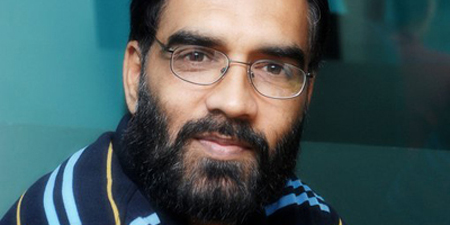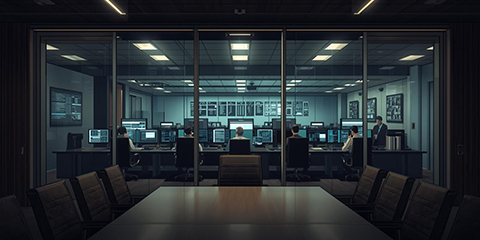Why I rejoined the newsroom?
JournalismPakistan.com | Published: 11 July 2013 | Azhar Malik
Join our WhatsApp channel
A journalist shares his experiences of working night shifts for over 20 years, highlighting the personal toll it took on family life. After leaving to pursue farming, he felt a loss of identity and ultimately decided to rejoin the newsroom while managing both careers.Summary
Working the night shift in different prestigious English newspapers — beginning 6:30pm to 2:00am — for over 20 years had been a thorn in my side. Slowly but steadily, it was eating into my vast reserves of energy and stamina like some worm, forcing me to look for a safe and secure way out.
During these years, it was as though someone had sent me to Coventry — the night shift always came in the way whenever I tried to attend some family function — marriage ceremonies or birthday parties. I was an outcast in the family. And this realization would really sicken me, sometimes.
But I had a fullback to take up the cudgels for me — my wife. Like a fierce fighter, she always stood in for me, cushioning me against incisive remarks and jibes from relatives — my own flesh and blood.
The thing that upset them all these years was that why do I skip such important functions. A kin said if Azhar does not attend their functions, they won’t ours. My wife would undergo the ordeal of justifying my absence.
I was not the only newsman facing this unpleasant situation. It happens to all those in the newspaper industry, especially those doing the thankless and unrewarding job of editing news reports/stories. For these backroom boys, there’re always brickbats and no bouquets. These two demerits combined into one, compelled me to call it a day and try my luck in agriculture.
So I got nine acres on rent in Taxila and got down to business. I felt a lot relieved. I was a free man; I was my own man. There were no tight deadlines to meet, no badly written stories to edit, no bad dreams to haunt and no phone calls to disturb sleep.
During more than 20 years in journalism, I never saw a reporter or editor praise the work of even the best of copyeditors. All their hard work and imagination simply goes down the drain even if they bedeck a reporter’s story with the best of words or rephrase it to make it meaningful for the readers’ comprehension.
Readers least know who a subeditor is. If a story reads fine, the credit goes to the reporter. And by a stroke of bad luck, if a story carries some mistake/s, then the buck shifts to the sub. So there is no reward but just the fear of being reprimanded by the editor. This always stalks a sub.
Subs/copyeditors have their hands full soon after they check in. Their folders are full of stories long before they enter the newsroom. Soon after exchanging greetings with colleagues, they get down to business and hardly find time to look up or have dinner with a peaceful mind. While they are dining, intros after intros keep flashing on their minds. Can one really enjoy a dinner in such situations?
In some newspapers, reporters are either not available on the phone or they switch off their cellphones soon after leaving the office so that nobody disturbs them. This is really a terrible situation for a sub because at times the reporter skips some vital points in his story and his availability on the phone or in person is necessary to make the copy flawless. But the problem is the reporter is unavailable or unreachable and the story has to be carried. In such situations, the sub has to be extra careful.
If his comprehension is good, the coast is clear for him. But if the situation is not so, a few words are poured into the editor’s ears and the the sub is heaped over the coals the following day. Once a sub is in the editor’s room, his colleagues can only pray for him.
A sub has to check pages while editing stories which distract him time and again. But these distractions stand nowhere in the eye of the editor and he wants flawless copy and pages.
Here’s an interesting thing to note. Once the editor of a top English newspaper, under whom I served for almost five years, cleared the final print of the city’s front page. The editor sat cool in his seat watching TV when the edition in charge entered his room and placed the final print on the desk.
Leaning forward from a creaking chair and grabbing a pen, the editor began scanning the page. It took him 15 minutes to clear the page, but the next day he received a number of calls in which the readers pointed out the mistake which the editor overlooked. So if an editor sitting in a comfy chair couldn’t stop a mistake from going into print, what could be expected from an overburdened and exhausted sub?
The editor accepted his blooper with grace and realized the fact that mistakes can’t be avoided but can definitely be minimized.
A newspaper is a rush literature. A little waver in decisions and all work gets spoilt. A newsroom just can’t afford this.
The newsroom’s biggest enemy is the clock that keeps ticking like a time bomb. It is like a battlefield where decisions should come quick so that the collective labor of dozens of people does not go to waste. If newspaper hawkers don’t collect your paper to drop it to the readers, it means all work going down the drain.
Within few months of bidding goodbye to journalism, I felt as though I had lost my identity. I found my colleagues were not as warm as they used to be when I was in. I also visited some newspaper offices and got a cold shoulder that deepened this sense of alienation.
I was like a fish out of water. No loss could be bigger than losing one’s own identity! Finally, I decided to join back without quitting farming. It’s almighty difficult pulling two canoes with two hands, but I have not thrown in the towel and continue to do it because survival of the fittest is the law of this jungle where knives are always out to stab you.
(The writer is a senior journalist)
KEY POINTS:
- Worked night shifts in journalism for over 20 years.
- Struggled with family obligations and personal identity.
- Transitioned to agriculture but felt alienated from the journalism community.
- Rejoined the newsroom while continuing farming.
- Highlighted the challenges faced by subeditors in a high-pressure environment.

























